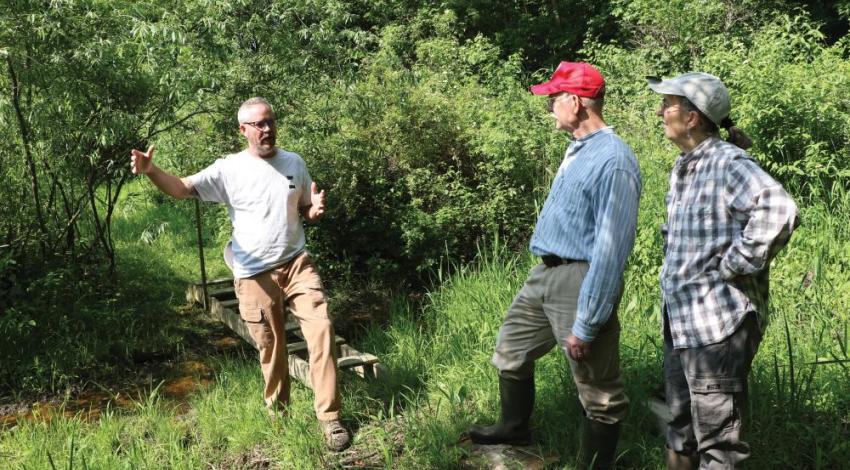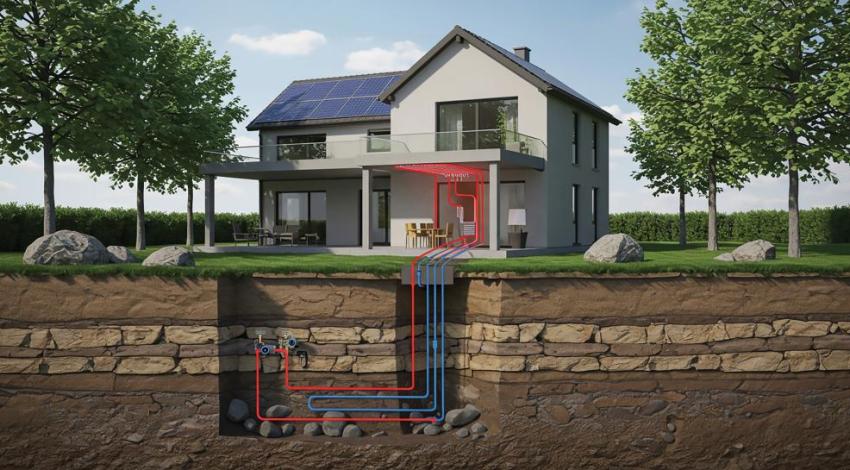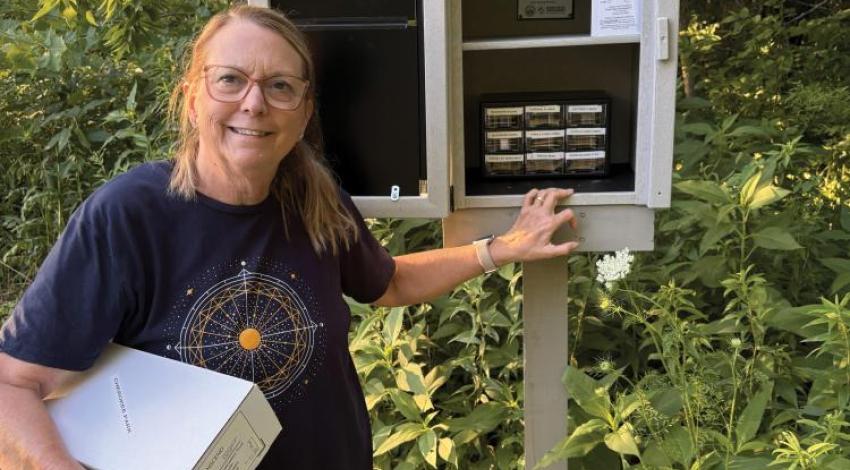Teresa Harshbarger of New Concord, daughter Alexa, and the family’s puppy, Ashley, say they never notice that their home’s water heater is cycled on and off with a remote switch from a radio tower at the local co-op to conserve power during times of peak use.
When Teresa Harshbarger and her family built their home outside of New Concord several years ago, they bought their water heater from Guernsey-Muskingum Electric Cooperative (GMEC). It came equipped with a radio-controlled switch that allows the cooperative to remotely turn off the heater to curtail electricity use during times of heavy demand. Though she says she’s sure the switch has been activated from time to time, she has never noticed when it happens.
“We know our cooperative has our best interests in mind, and they are conserving energy without us even knowing it,” she says. “There are some ways the co-op seems like a family, and we trust the decisions they make.”
Why manage demand?
Electric cooperatives in Ohio began using radio-controlled remote switches as far back as the 1970s to help manage their electricity load. That load management is important because rates for the entire year are set based on the highest points of usage during the year — called the peak demand — so cutting back as the load level approaches that peak helps avoid establishing a new one. By turning off water heaters, air conditioners, and heat pumps during times of high demand, cooperatives and their members across the state can save a substantial amount of money on electricity costs.
Peak demands typically occur on the hottest summer days, between 2 and 6 p.m., when heavy use of air conditioners draws large amounts of power, or on bitterly cold winter days.
“During peak times of use, we will issue a peak alert, and a signal goes out from our tower to the radio boxes on the units,” explains Brian Bennett, manager of marketing and member services at GMEC. “Some members notice when it happens, others never notice anything.” The signal shuts down water heaters until the peak alert passes. Similar switches will cycle power on and off to members’ air-conditioning units or heat pumps for the duration of the alert.
It happens in the background
Sue Rayburn has been a member of Consolidated Electric Cooperative, based in Mt. Gilead, for more than 40 years. She has a remote switch installed on her water heater, and she says she has never been inconvenienced or even noticed an interruption in her service. “I can’t tell if my water heater has ever been turned off,” she says. “We have never, ever, been without hot water.” She’s been so happy with the program, she opted to have a second switch installed on her heat pump.
Similarly, Jim and Yvonne Danison, longtime GMEC members, have had a remote switch on their heat pump for more than 20 years. “There was one time when it was very cold outside, and the temperature on our thermostat went down a few degrees,” Yvonne says. “We noticed it, but it wasn’t an inconvenience.”
The Danisons also had a second switch installed on their water heater, and they say they have never noticed a shortage of hot water — they say even if the cooperative turns their water heater off during a peak alert, their 80-gallon tank has plenty to last until it passes.
Many Ohio cooperatives use the technology, and typically offer bill credits or rebates for members who participate. The programs differ around the state, so call your co-op for details.
Little actions make a big difference
While one remote switch on a single water heater may not make a huge difference, the overall program conserves a significant amount of electricity — there are more than 100,000 switches installed on cooperative members’ water heaters and more than 15,000 air conditioners — and saves everyone money.
“The reason we do anything is for the benefit of our members,” says Consolidated Electric Cooperative CEO Phil Caskey. “Whether it’s load management, or any other rebate program, our goals are to provide reliable service for a reasonable price and to improve the quality of life for the people we serve.”









